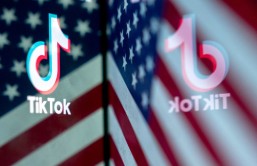The nation expressed an interest in learning more about bee keeping for National Honey Bee Day.
Classes and seminars were organized across the nation in hopes of producing a new wave of beekeepers, Greener Ideal reported.
Beekeepers in the U.S. lost about 31 percent of their colonies; Canada has lost 35 percent over the past three years.
About one third of food eaten in the U.S. is pollinated by bees, so a drastic decline in the species could prove to be catastrophic.
Honey bees are not native to America, they were brought overseas during the colonial era for their wax and honey, The Lufkin News reported.
Their exact origin is largely debated, Thomas Jefferson even wrote about their mysterious appearance.
"The Indians concur with us in the tradition that it was brought from Europe, but when and by whom we know not," Jefferson wrote, according to The Lufkin News.
It wasn't until 2009 that the U.S. started to celebrate the bees' importance.
The first National Honey Bee Day program was originally meant to be focused on bee associations, but it quickly became a nation-wide effort.
The 2013 program had participants in 23 states, according to the National Honey Bee Day website.
Other organizations will keep the awareness movement going even though the national day has passed.
In September, two bee farms in Hawaii will offer "beginning organic beekeeping classes," in hopes of getting local citizens involved with restoring the essential species, a Hawaii 24/7 press release reported.
Honey bees have been suffering from something known as colony collapse disorder, which has caused widespread hive loss.
"Bee colonies [have] decreased from 5 million in the 1940s to only 2.5 million today. At the same time, the call for hives to provide pollination services has continued to increase. This means honey bee colonies are being transported over longer distances than ever before," the Agricultural Research Service reported.








